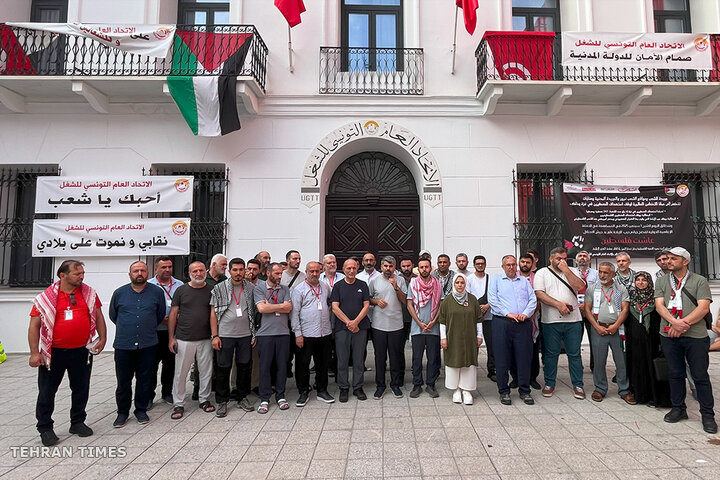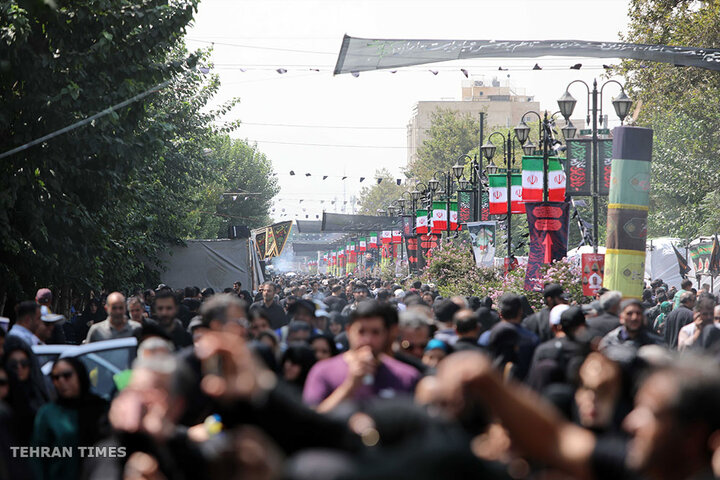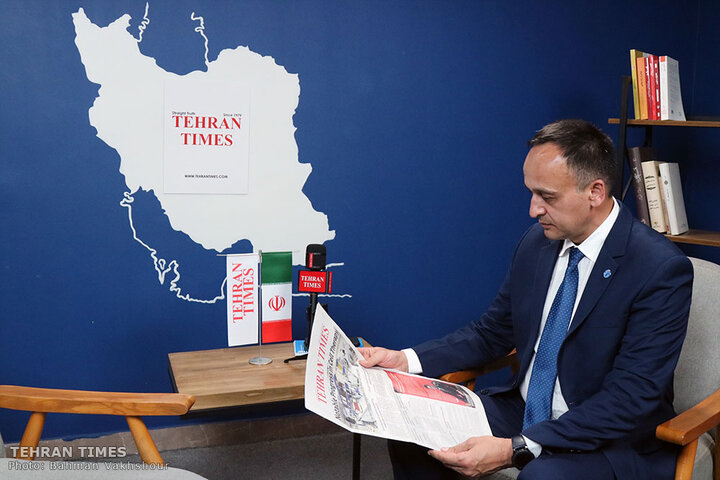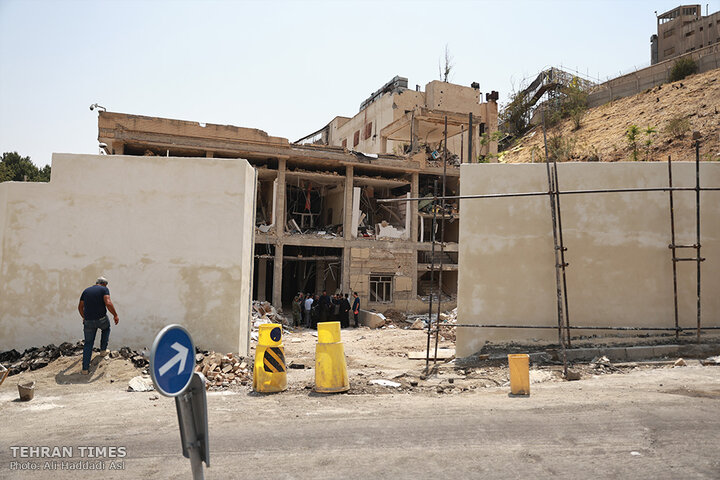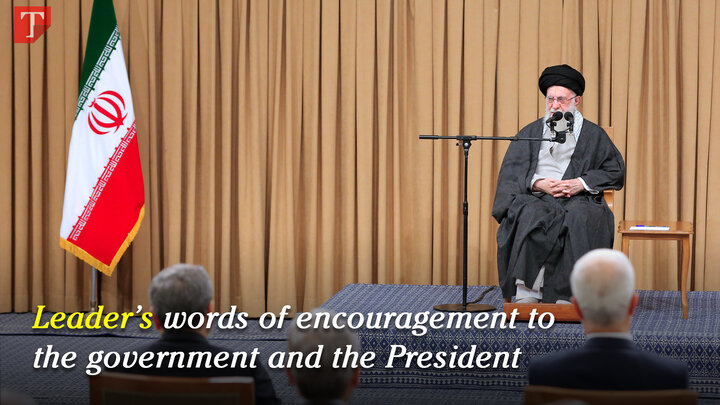-
 2025-09-12 20:37
2025-09-12 20:37
By staff writer
Israel's attack on Doha; will Arab states wake up?
TEHRAN – Israel’s reckless airstrike in Doha this week has shifted the political landscape in West Asia. The attack struck a residential area in the Qatari capital on Tuesday, where a Hamas delegation was meeting during U.S.-proposed ceasefire talks over the Gaza conflict. The strike killed five lower-ranking Hamas members, while the leadership survived. A Qatari security officer also lost his life.
-
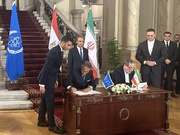
By Mona Hojat Ansari
After Cairo talks, a cautious resumption of Iran-IAEA cooperation
Inspectors' full return to Iran hinges on sanctions and security body’s judgement
TEHRAN – After a meeting in Cairo between Iranian Foreign Minister Abbas Araghchi and the International Atomic Energy Agency (IAEA) Director General Rafael Grossi, Iran and the IAEA agreed to resume cooperation on Tuesday, an agreement that seemingly pleased Grossi but created a bedlam in the Iranian parliament.
-

By Xavier Villar
Israel, the United States, and the attack on Qatar
MADRID – The Israeli attack on members of the Hamas delegation in Qatar, gathered to discuss a ceasefire proposal, marks a political turning point that goes beyond the immediate framework of the war in Gaza. It was not a mere military act nor a routine operation: it was a calculated move with broader implications. It called into question the validity of diplomacy, exposed the vulnerability of America’s allies, and laid bare that the regional alliance system rests on subordination, not sovereignty.
-
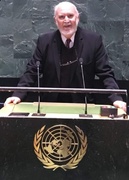
By Sahar Dadjoo
Exclusive: If IAEA remains politicized, safeguards system may collapse, ex-senior inspector warns
Abu Shadi calls for nuclear-weapon-free zone in West Asia, urges equal accountability for Israel
TEHRAN – Iran and the International Atomic Energy Agency (IAEA) recently agreed to resume cooperation after the agency's inspectors left Iran during a U.S.-Israeli bombardment campaign on Iranian nuclear facilities in June, and were subsequently barred from re-entry.
-

By Garsha Vazirian
The widening gyre: Charlie Kirk's assassination and America's spiral into political violence
TEHRAN – In the shattered aftermath of Charlie Kirk's assassination, America stares into a mirror cracked by its own hand. “Turning and turning in the widening gyre / The falcon cannot hear the falconer,” William Butler Yeats intoned in “The Second Coming,” evoking a world where order dissolves into chaos.
-
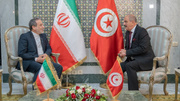
Araghchi in Tunisia: Iran and Tunisia pledge stronger ties, condemn Israeli aggression
TEHRAN – Iranian Foreign Minister Abbas Araghchi paid an official visit to Tunisia on Wednesday, holding high-level talks with President Kais Saied, Foreign Minister Mohamed Ali Nafti, and other senior officials, as part of his broader tour of North Africa.
Politics
-
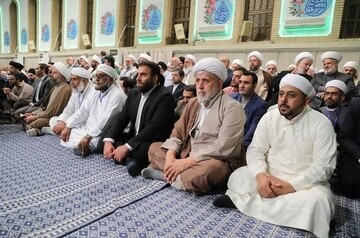
Shia and Sunni scholars unite to condemn Israeli aggression against Iran
TEHRAN – Shia and Sunni scholars across Iran and the wider Muslim world have issued strong condemnations of Israel’s war on Iran, framing resistance as a sacred duty that transcends sectarian divides.
-

Iranian officials urge coordinated Muslim response to Israeli crimes
TEHRAN – Senior Iranian officials have strongly condemned Israel’s unprecedented airstrikes on Qatar, denouncing the attacks as state terrorism carried out with U.S. backing, and urging Muslim nations and international institutions to take decisive action.
-

Araghchi in Tunisia: Iran and Tunisia pledge stronger ties, condemn Israeli aggression
TEHRAN – Iranian Foreign Minister Abbas Araghchi paid an official visit to Tunisia on Wednesday, holding high-level talks with President Kais Saied, Foreign Minister Mohamed Ali Nafti, and other senior officials, as part of his broader tour of North Africa.
Sports
-

Esteghlal lose to Esteghlal Khuzestan, Tractor emerge victorious
TEHRAN – Esteghlal football team suffered a 1-0 loss against Esteghlal Khuzestan in Matchweek 3 of 2025/26 Iran’s Persian Gulf Professional League (PGPL) on Friday.
-

Mehdi Taremi joins FIFA Century Club
TEHRAN – Iran football team forward Mehdi Taremi celebrated his 100th international cap in 2025 CAFA Nations Cup.
-

Bam Khatoon handed tough draw at AFC Women’s Champions League 2025/26
TEHRAN - The AFC Women’s Champions League 2025/26 cast discovered their path to glory following the Group Stage Draw at the AFC House in Kuala Lumpur, Malaysia on Thursday.
Culture
-
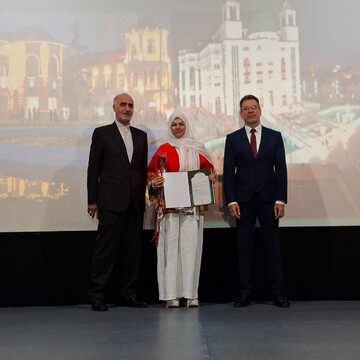
Documentary “Symphony of Cities; Windows of Friendship” screened in Astrakhan
TEHRAN – The Iranian documentary film “Symphony of Cities; Windows of Friendship” was screened in Astrakhan, Russia, on Thursday and was attended by officials and enthusiasts of culture and art from both Iran and Russia.
-

Tehran center to host reading performance of “The House of Bernarda Alba”
TEHRAN-Neauphle-le-Chateau Theater in Tehran will be playing host to a reading performance of Federico Garcia Lorca’s famous play “The House of Bernarda Alba” on Saturday evening.
-

IAF cinematheque reviews “Faust”
TEHRAN- “Faust,” a 1994 drama film by Czech film director Jan Švankmajer, was reviewed during a session at the Cinematheque of the Iranian Artists Forum (IAF) on Thursday.
Economy
-
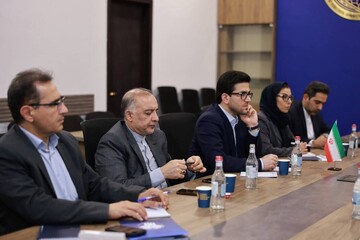
Tehran, Yerevan discuss expanding energy cooperation
TEHRAN – Iran and Armenia have held talks on expanding cooperation in the energy sector, including trade in petroleum products and potential supplies of liquefied gas, during meetings between senior officials of the two countries.
-

Iran in talks with Chinese firms to expand solar, energy storage projects
TEHRAN – Iran is negotiating with several Chinese companies to develop solar power plants and battery energy storage systems (BESS) as part of efforts to boost renewable capacity, a senior official at the Iran Power Generation, Transmission and Distribution Company (Tavanir) said.
-
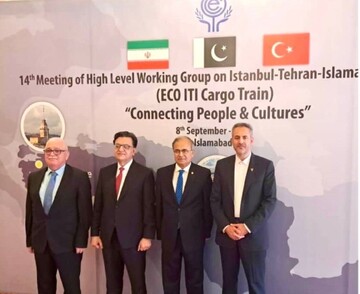
Iran, Pakistan, Turkey agree with ECO to revive ITI transit rail corridor
TEHRAN – Iran, Pakistan and Turkey have agreed with the Economic Cooperation Organization (ECO) to revive monthly freight services along the 6,540-km Istanbul–Tehran–Islamabad (ITI) rail corridor, aiming to cut trade times and boost regional competitiveness.
Society
-
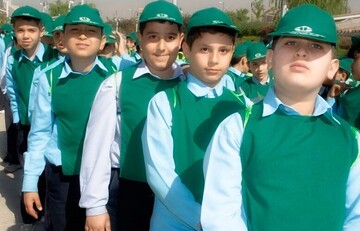
‘Environmental helpers’ to be trained in elementary schools
TEHRAN – Since education plays a key role in boosting environmental protection, the Department of Environment (DOE) is planning to implement a national project which aims at training eco-friendly students, dubbed as ‘environmental helpers’, in 20 percent of elementary schools across the country.
-
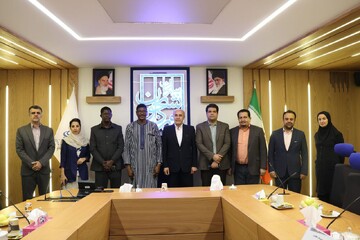
‘Burkina Faso needs Iran's expertise for sustainable development’
TEHRAN – Burkina Faso’s Ambassador to Tehran, Mohammadi Kaboureh, has highlighted the significance of boosting scientific ties with Iran, calling it essential for the sustainable development of the African country.
-
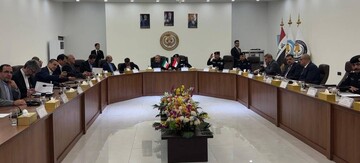
Tehran, Baghdad hold joint meeting on combating drugs
TEHRAN –Participating in the 2nd joint meeting of committee on combating drugs and psychotropic substances in Baghdad, Iranian and Iraqi officials have underscored their commitment to combat drug-related crimes.
Tourism
-
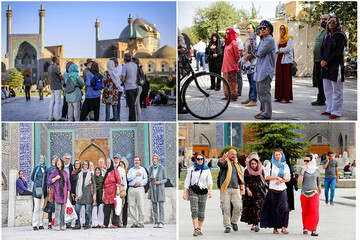
Iran tour operators welcome restrictions on unplanned foreign travel
TEHRAN – Iranian tour operators have welcomed new guidelines requiring foreign visitors to travel with visas and licensed guides, saying the move will support the tourism industry and local communities.
-

Rock carving of Sassanid ‘nobleman’ discovered in southern Iran
TEHRAN - A Sassanid-era rock carving estimated to be more than 1,500 years old has been discovered on the cliffs of Marvdasht in southern Iran’s Fars province, an Iranian historian said on Thursday.
-

Iran considers importing tourism vehicles from China
TEHRAN – Iran considers importing tourism vehicles from China and drafting a joint roadmap to strengthen transport infrastructure for the sector, the head of Iran’s Touring and Automobile Club said on Thursday.
International
-
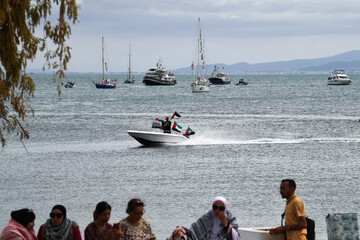
Israeli drones strike Sumud flotilla twice; activists press on
The Global Sumud Flotilla, a civilian-led mission to break Israel’s naval blockade of Gaza, has faced two suspected drone attacks in Tunisian waters this week, drawing international condemnation and diplomatic pressure on Israel.
-
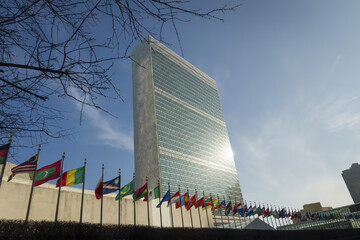
UN overwhelmingly endorses two-state solution declaration
The United Nations General Assembly on Friday overwhelmingly voted to endorse a declaration outlining "tangible, timebound, and irreversible steps" towards a two-state solution between Israel and the Palestinians ahead of a meeting of world leaders, Reuters reported.
-

“Alarming” rise in Gaza child malnutrition
TEHRAN – The United Nations Children’s Fund (UNICEF) has reported an alarmingly sharp increase in child malnutrition in Gaza, with rates reaching 13.5% last month.
Video Comment
-
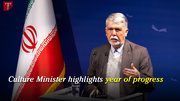
Culture minister highlights year of progress in arts, global image enhancement
-

Gazan Journalists attacked by Israel
-

Brother of Iranian scientist murdered in Israeli strike speaks out
-
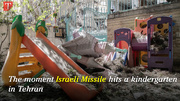
Footage shows Israel hit a kindergarten in Tehran
-
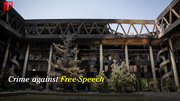
Delegates and ambassadors from 28 countries visited the IRIB building
Most Viewed
-
Exclusive: Trump okayed Israel’s strike on Hamas leadership in Doha, Aleef Sabbagh says
-
The widening gyre: Charlie Kirk's assassination and America's spiral into political violence
-
Israel's attack on Doha; will Arab states wake up?
-
Exclusive: If IAEA remains politicized, safeguards system may collapse, ex-senior inspector warns
-
After Cairo talks, a cautious resumption of Iran-IAEA cooperation
-
Israel, the United States, and the attack on Qatar
-
Uruguay condemns Israeli airstrike in Doha amid global outcry
-
‘Burkina Faso needs Iran's expertise for sustainable development’
-
Iran in talks with Chinese firms to expand solar, energy storage projects
-
Araghchi in Tunisia: Iran and Tunisia pledge stronger ties, condemn Israeli aggression
-
Iran tour operators welcome restrictions on unplanned foreign travel
-
Israel’s latest Yemen assault kills 46 amid vows of continued Yemeni resistance
-
Iran, Pakistan, Turkey agree with ECO to revive ITI transit rail corridor
-
How Lebanon’s Resistance may adapt under pressure
-
Tehran, Baghdad hold joint meeting on combating drugs

